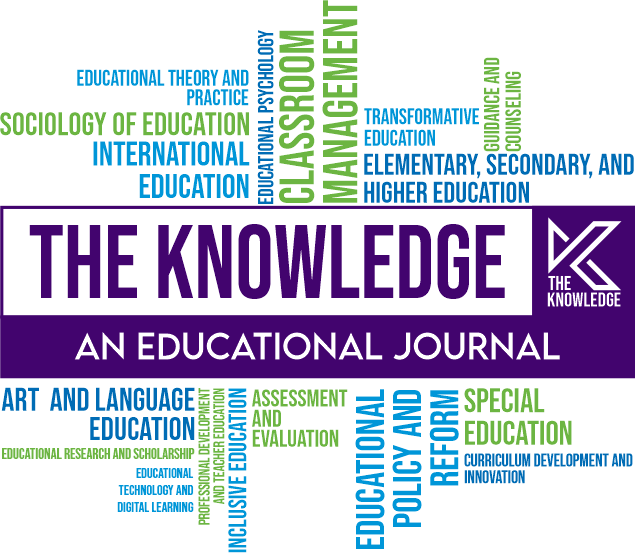Digital Citizenship and Mental Health: Impact of Screen Addiction and Online Behavior in University Life
DOI:
https://doi.org/10.55737/tk/2k25c.43079Keywords:
Digital Citizenship, Screen Addiction, Mental Health, University Students, Pakistan, Digital Well-being, Online Behavior, Digital Literacy, Higher Education, Psychological DistressAbstract
In Pakistani universities educational environment digitizing rapidly in recent years, students rely on digital plate forms which are increasing day by day and they acquire quality education, social interactions, digital marketing and entertainment. This technology offers benefits in terms of access and convenience to it also contribute to grow mental health concerns especially the screen addition, anxiety, depression and disturbance in sleep cycle. These all cause of reduce of academic focus. This study explores the connection between digital citizenship and mental health of universities students in Pakistan. Quantitative descriptive correlational design was used in this research. Data was collected from the students across public and private universities using standardized tools such as digital citizenship scale, scree addiction scale and DASS-21. The study found a strong correlation between screen time and mental health outcome that is, more screen time, more poor mental health. Students lacked awareness of digital self-regulation and online responsibility. Security issue in digital citizenship in Pakistani Curricula is absent at higher level education. This study recommends digital citizenship, integration, training into academic program. The strategies are essential for fostering digitally responsible and psychologically and resilient student community in Pakistan higher education landscape.
References
Ameer, S., & Hukamdad, M. (2025). Digital Citizenship and Online Learning in Pakistan: Highlighting the Need for Promoting Responsible Online Behaviour in a Growing Digital Education Landscape. ProScholar Insights, 4(2), 81-95. https://doi.org/10.62997/psi.2025b-42086
Cortesi, S. C., Hasse, A., Lombana, A., Kim, S., & Gasser, U. (2020). Youth and digital citizenship+ (plus): Understanding skills for a digital world. SSRN Electronic Journal. https://doi.org/10.2139/ssrn.3557518
Gilmour, L. (2019). Digital Citizenship and Social Media (Doctoral dissertation, California State University, Northridge).
Kabanova, E. E., & Vetrova, E. A. (2019). The use of modern electronic gadgets in the educational process of the university. European Journal of Contemporary Education, 8(3), 524-533. https://doi.org/10.13187/ejced.2019.3.524
Katz, E., Blumler, J. G., & Gurevitch, M. (1973-1974). Uses and gratifications research. Public Opinion Quarterly, 37(4), 509–523. https://doi.org/10.1086/268109
Kuhdasht, R. N., Ghayeninejad, Z., & Nastiezaie, N. (2018). The relationship between phone dependency with psychological disorders and academic burnout in students. Journal of Research and Health, 8(2), 189–195. https://doi.org/10.29252/jrh.8.2.189
Lucey, T. A., & Lin, M. (2020). Ghosts in the machine: Understanding digital citizenship as the struggle of students’ souls with classroom technology. International Journal of Children's Spirituality, 25(2), 91-108. http://dx.doi.org/10.1080/1364436X.2020.1797641
Meghji, K. A., Talpur, M., Khan, A., Fatima, H., & Memon, U. (2025). Screening Student Behavior: Exploring the Impact of Daily Screen Time on Sleep Quality, Mental Distress, and Academic Performance in Students: Screening Student Behavior. Pakistan Journal of Health Sciences, 150-155. https://doi.org/10.54393/pjhs.v6i3.2745
Nasir, T., Anwar, S. A. S., Iqbal, N., & Arif, M. (2025). The Psychological Impact of Digital Media Consumption on Mental Health, A Case Study of Undergraduate Students in Pakistan. Annual Methodological Archive Research Review, 3(4), 369-382. https://doi.org/10.63075/7022md02
Nawaz, I., Sultana, I., Amjad, M. J., & Shaheen, A. (2017). Measuring the enormity of nomophobia among youth in Pakistan. Journal of Technology in Behavioral Science, 2(3), 149-155. https://doi.org/10.1007/s41347-017-0028-0
Öztürk, G. (2021). Digital citizenship and its teaching: A literature review. Journal of Educational Technology and Online Learning, 4(1), 31-45.
Ribble, M. (2015). Digital citizenship in schools: Nine elements all students should know (3rd ed.). ISTE Press.
Saqib, M. U., & Mushtaq, R. (2025). Role of National Professional Standards for Teachers in Cultivating Ethical Values in Teachers. ProScholar Insights, 4(1), 1-7. https://doi.org/10.62997/psi.2025a-41035
Saqib, M. U., Tabassum, F., Haqdad, A., Qamar, A. M., Ameer, S., & Awan, M. A. (2025). Role of Technology in the Professional Development of Prospective Teachers at Secondary Level in Punjab. International Journal of Innovation, Creativity and Change, 15(4).
Sarkar, S. K., Roy, P., Podder, A., Ghosh, S., & Sen, A. (2025). The Digital Dilemma: Navigating Smartphone and Social Media Addiction. In Smartphone Addiction, Phone Snubbing, and Effects on Interpersonal Relationships and Mental Health (pp. 179-210). IGI Global Scientific Publishing. https://doi.org/10.4018/979-8-3693-8804-4.ch007
Shensa, A., Escobar-Viera, C. G., Sidani, J. E., Bowman, N. D., Marshal, M. P., & Primack, B. A. (2017). Problematic social media use and depressive symptoms among US young adults: A nationally-representative study. Social science & medicine, 182, 150-157. https://doi.org/10.1016/j.socscimed.2017.03.061
Si, E., & Lee, G. (2023). Moderating Effects of Digital Citizenship on Problematic Digital Media Use and Children's Happiness: A Cross‐Sectional Study. Journal of School Health, 93(6), 485-493. https://doi.org/10.1111/josh.13275
Siddiqi, A. (2018). ‘Disaster citizenship’: an emerging framework for understanding the depth of digital citizenship in Pakistan. Contemporary South Asia, 26(2), 157-174. https://doi.org/10.1080/09584935.2017.1407294
Zafar, N., Kausar, R., & Pallesen, S. (2018). Internet addiction, insomnia and mental health problems in university students in Pakistan. Pakistan Journal of Social and Clinical Psychology, 16(2), 10-16. https://www.gcu.edu.pk/pages/gcupress/pjscp/volumes/pjscp20182-2.pdf
Zaman, S. U., Sabih, A., Alam, S. H., & Shahzad, K. (2025). User Acceptance of Social Media-Backed Digital Detox Apps: Exploring the Role of Personality Traits in Pakistan's Digital Landscape. Annual Methodological Archive Research Review, 3(4), 97-124. https://doi.org/10.63075/1nfx8d75
Downloads
Published
Issue
Section
License
Copyright (c) 2025 Copyright in the THE KNOWLEDGE is retained by the author(s). Authors also grant any third party the right to use the article freely as long as its integrity is maintained and its original authors, citation details and publisher are identified.
This work is licensed under a Creative Commons Attribution-NonCommercial 4.0 International License.







